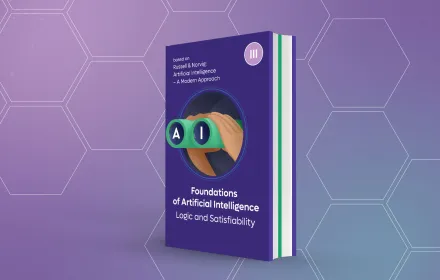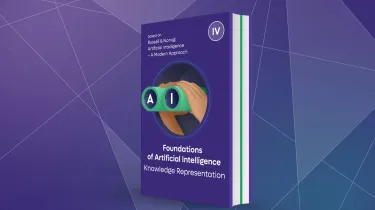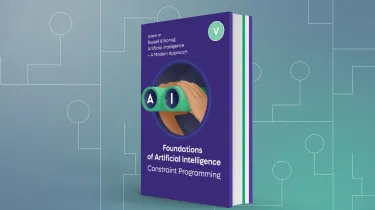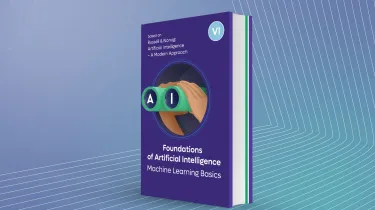Methoden der KI III - Logisches Denken
Dieser Kurs führt in das logische Denken ein und zeigt, wie es mit Hilfe der mathematischen/philosophischen Logik in KI-Systemen implementiert werden kann.

Überblick
Der Kurs diskutiert die Möglichkeiten und Grenzen der Modellierung logischen Denkens mit Hilfe der Aussagen- und Prädikatenlogik erster Ordnung. Er zeigt auf, worum es beim logischen Denken geht und wie es KI-Agenten helfen kann, erfolgreich in der Welt zu handeln? Es werden Methoden zur Bestimmung der Konsistenz einer logischen Wissensbasis auf der Grundlage des Begriffs der Erfüllbarkeit vorgestellt und Algorithmen wie Resolution und der Davis-Putman Logemann-Loveland (DPLL) Algorithmus diskutiert, die es logischen Agenten ermöglichen, korrekte Schlussfolgerungen zu ziehen und implizites Wissen explizit zu machen. DPLL liegt modernen SAT-Solvern zugrunde, die große KI-Optimierungsprobleme lösen können, die mit Milliarden von logischen Variablen beschrieben sind. Die präzise Behandlung von logischen Sprachen und Algorithmen wird durch zahlreiche praktische Beispiele ergänzt.
Dieser Kurs basiert teilweise auf den Kapiteln 7, 8 und 9 des Lehrbuchs von Stuart Russell und Peter Norvig: Introduction to Artificial Intelligence - A Modern Approach.
Der Kurs wird in englischer Sprache mit deutschen Untertiteln gehalten.
Welche Themen werden behandelt?
- Aussagenlogik (Syntax, Semantik, Normalformen)
- Resolution
- Davis-Putnam Logemann-Loveland (DPLL) Algorithmus
- Erfüllbarkeit und SAT-Solver
- Prädikatenlogik erster Stufe (Syntax, Semantik, Normalformen)
- Herbrand Theorie und die Reduktion des prädikatenlogischen Schliessens auf aussagenlogische Erfüllbarkeit
- Vorwärts- und Rückwärtsverkettung (forward/backward chaining)
Was werde ich erreichen?
Am Ende des Kurses sind Sie in der Lage
- die in der KI verwendeten logischen Methoden zu verstehen,
- einfache Anwendungsprobleme mit Logik zu modellieren,
- Möglichkeiten und Grenzen logischer Methoden und Algorithmen in der Praxis einzuschätzen,
- die Bedeutung von SAT-Solvern für die KI-Optimierung verstehen.
Welche Voraussetzungen muss ich erfüllen?
Keine.
Der Kurs "Methoden der KI IV - Wissensrepräsentation" vertieft die Verwendung von Logik für die Repräsentation von begrifflichem und faktischem Wissen.
Der Kurs "Methoden der KI V - Constraint-Programmierung" bietet zusätzlichen Hintergrund zu SAT-Solvern und erklärt, wie KI-Optimierungs- und Constraint-Probleme mit modernen CP-SAT-Solvern gelöst werden.











